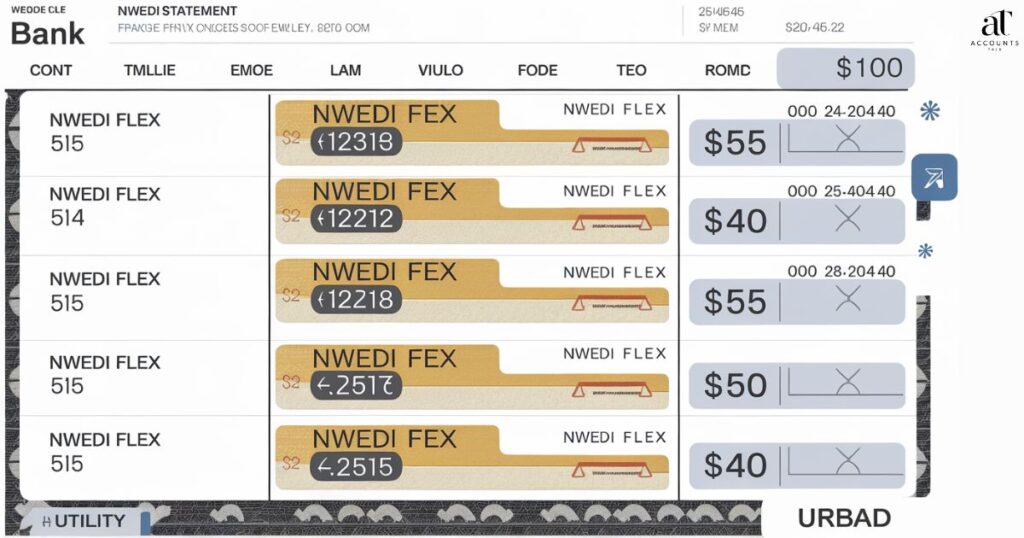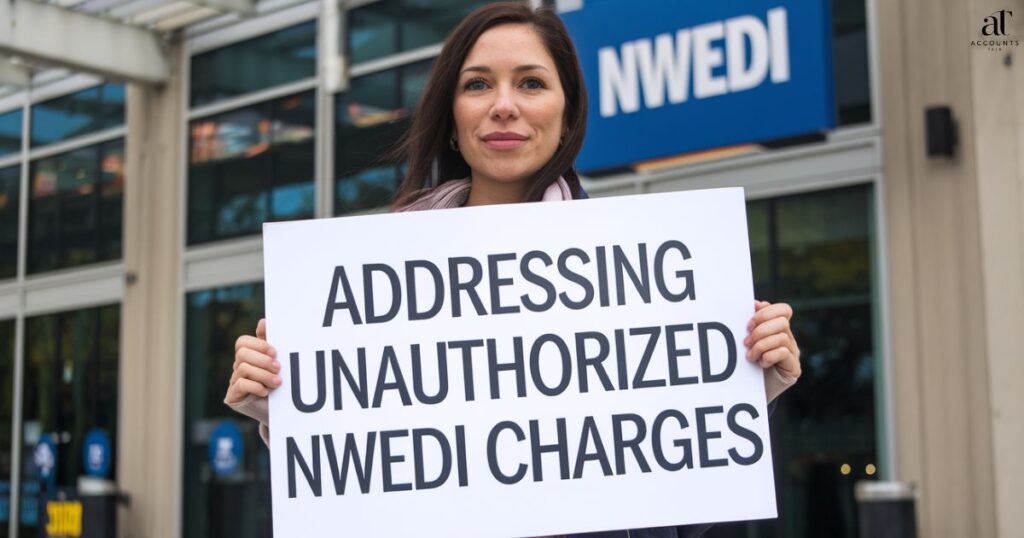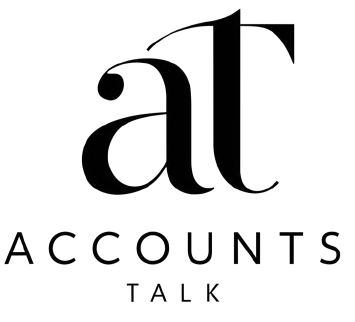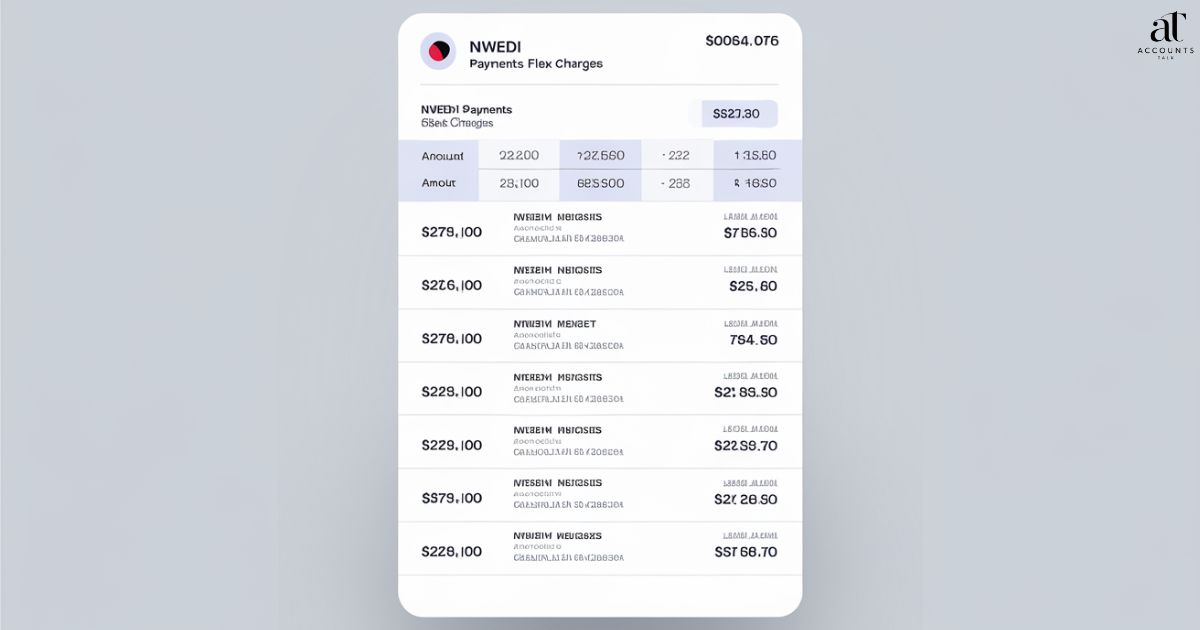What Are NWEDI EDI Payments?
NWEDI, short for Nationwide EDI (Electronic Data Interchange) Payments, refers to a type of electronic payment transaction commonly used in the business-to-business (B2B) landscape. EDI is a widely adopted standard for the electronic exchange of documents like purchase orders, invoices, and other financial information between companies.
NWEDI payments allow businesses to facilitate these B2B transactions seamlessly and efficiently. However, these NWEDI or Nationwide EDI payment transactions can sometimes appear on personal bank statements, even for individuals who don’t own a business. This is where the “Flex Charges” associated with NWEDI payments come into play.
The use of NWEDI payments has become increasingly prevalent in the modern business world, as they offer several advantages over traditional paper-based payment methods. By streamlining the exchange of financial documents, NWEDI payments can help businesses save time, reduce errors, and improve overall efficiency. Additionally, the electronic nature of NWEDI payments can provide enhanced security and traceability compared to physical invoices or checks.
Decoding NWEDI Flex Charges on Your Bank Statement

The “Flex Charges” related to NWEDI payments are typically fees or surcharges applied to these electronic payment transactions. There are a few common reasons why NWEDI Flex Charges may show up on your personal bank statement:
- Vendor Payments: If you own a business and use NWEDI to pay suppliers or vendors, those transactions will likely appear on your personal bank account. This is because many businesses choose to use a personal account for their business-related expenses, rather than maintaining a separate business account.
- Subscription Services: Some subscription-based services or memberships you have may utilize NWEDI payments, leading to those charges on your statement. This could include recurring payments for professional memberships, software subscriptions, or even gym memberships that use an electronic payment system.
- Unauthorized Charges: In some cases, fraudsters may use NWEDI to make unauthorized charges to your account, which you’ll need to dispute. This can happen if your payment information is compromised, and criminals attempt to use the NWEDI system to make illicit transactions.
It’s important to understand that NWEDI Flex Charges are not typical consumer purchases but rather business-oriented electronic payment transactions. This distinction is crucial when reviewing your bank statements and identifying any suspicious or unexpected charges.
- More Post: What Is AGI TMO Service Fees Charge On Bank Statement? A Comprehensive Guide for USA Consumers
Preventing Unwanted NWEDI Charges
To avoid unexpected or unauthorized NWEDI Flex Charges on your bank statement, consider the following steps:
- Review Subscriptions and Memberships: Regularly review your bank statements to identify any recurring NWEDI charges. This will help you detect any subscriptions or memberships you may have forgotten about or no longer use. Promptly cancel any services you no longer need to prevent future NWEDI charges.
- Secure Your Accounts: Ensure your banking and payment information is protected by using strong, unique passwords for all your accounts. Enable two-factor authentication whenever possible, and closely monitor your accounts for any suspicious activity. This will help prevent unauthorized access to your payment information and reduce the risk of fraudulent NWEDI charges.
- Educate Yourself: Take the time to learn more about NWEDI payments and how they may apply to your personal finances. Understanding the purpose and mechanics of these electronic payment transactions will help you better recognize and understand any NWEDI Flex Charges that appear on your statements.
Addressing Unauthorized NWEDI Charges

If you spot NWEDI Flex Charges on Your Bank Statement that you don’t recognize, it’s crucial to take prompt action:
Move Quickly
Act swiftly to dispute any unauthorized NWEDI charges. The sooner you notify your bank, the better. Delaying your response can make it more difficult to resolve the issue and get the charges reversed.
Card Theft
If you suspect your payment card information has been compromised, report it to your bank immediately and request a new card. This will help prevent further unauthorized charges and protect your financial accounts.
Know Your Rights
Under the Fair Credit Billing Act, you have the right to dispute unauthorized charges on your credit or debit card within 60 days of the statement date. This federal law provides important consumer protections and can help you resolve any fraudulent NWEDI charges.
Reporting and Fixing It
Contact your bank’s fraud department to report the unauthorized NWEDI charges and request a full refund. Be prepared to provide any evidence you have, such as account statements or documentation, to support your claim.
Freeze and Protect
Consider placing a freeze on your credit reports to prevent further unauthorized activity and protect your identity. This can help mitigate the risk of identity theft and ensure that no new accounts are opened in your name without your knowledge.
Taking these steps promptly can help you quickly address and resolve any unauthorized NWEDI charges, minimizing the impact on your finances and credit.
FAQs
What are Nwedi EDI payments?
Nwedi EDI payments, or Nationwide EDI Payments, refer to electronic payment transactions used for B2B (business-to-business) payments, such as invoices, purchase orders, and other financial information. These payments may appear on consumer bank statements even for individuals who don’t own a business.
What are nationwide EDI payments on bank statements?
Nationwide EDI payments on bank statements are typically business-oriented electronic payment transactions, such as vendor payments or subscription service fees, that may appear on personal bank accounts. These charges are related to the NWEDI (Nationwide EDI) payment system, which is commonly used for B2B financial transactions.
What is EDI Pymnts Flex?
EDI Pymnts Flex refers to the fees or surcharges associated with NWEDI (Nationwide EDI) payments that can show up on consumer bank statements, even for individuals who don’t own a business. These “Flex Charges” are typically related to the processing and handling of the electronic payment transactions.
Why did I receive an EDI payment on my bank statement?
You may receive an EDI payment on your bank statement for a few reasons:
- If you own a business and use NWEDI to pay suppliers or vendors, those transactions may appear on your personal bank account.
- Some subscription-based services or memberships you have may utilize NWEDI payments, leading to those charges on your statement.
- In some cases, fraudsters may use NWEDI to make unauthorized charges to your account, which you’ll need to dispute.
The key thing to remember is that NWEDI payments are not typical consumer purchases, but rather business-oriented electronic payment transactions that can sometimes show up on personal bank statements.
More Post:

Mia Hazel is a finance expert and the author behind insightful content that simplifies complex financial concepts. With a passion for empowering readers to make informed financial decisions, Mia breaks down everything from budgeting to investments with clarity and precision.
Her work is dedicated to helping individuals navigate the financial world with confidence and achieve their financial goals. Follow her for practical tips and advice on all things finance.

